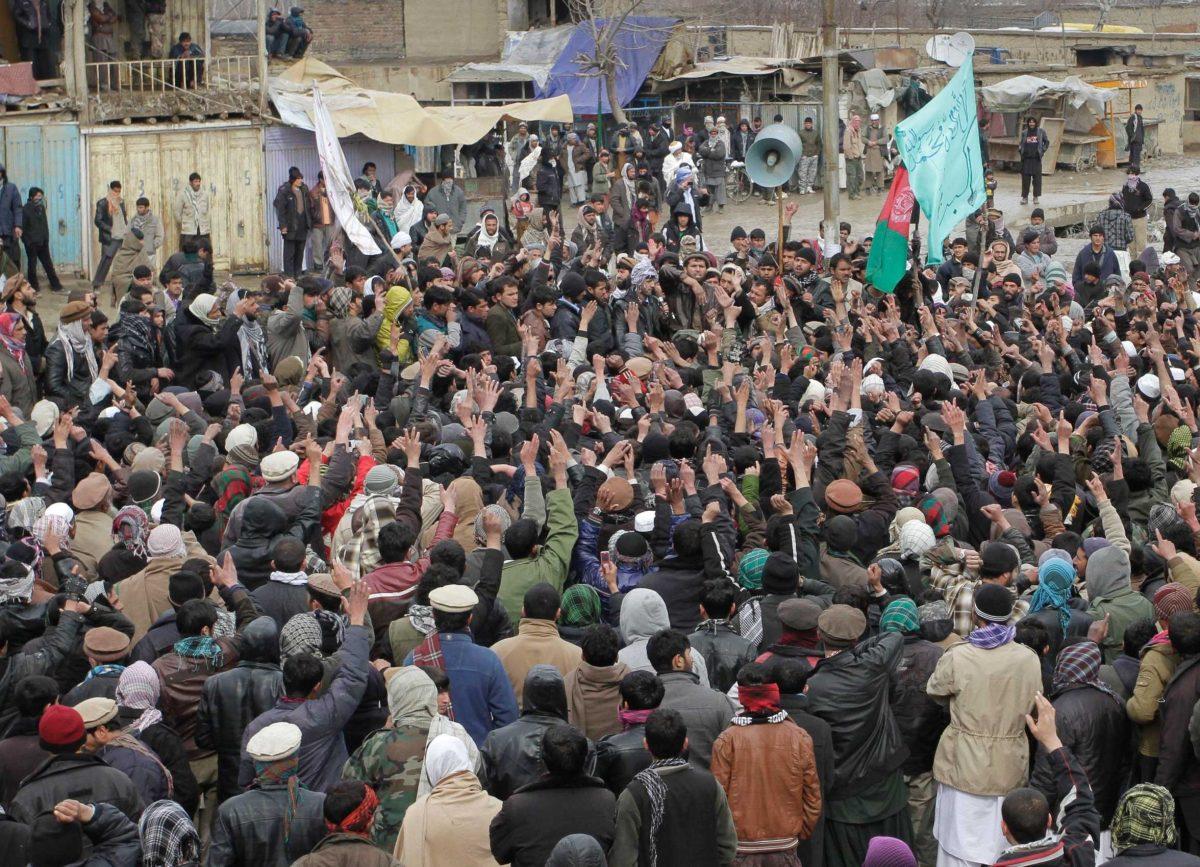“What men call accident is God’s own part,” wrote English poet Philip James Bailey.
Troublesome, then, is the government’s insistence that the recent Quran burnings at Bagram airbase in Afghanistan were accidental.
Yahweh, Allah, L. Ron Hubbard — none of man’s formulations of divinity purports to be tolerant of the butchery resulting from last week’s incident, most recently demonstrated in yesterday’s suicide bombing of a military airport in eastern Afghanistan.
The burning of religious texts, holy scriptures and divinely inspired literature is never accidental. Never.
And even if we accept the enormously inopportune gaffe as a mere “whoops,” there’s still the “incomprehensible” fact “there weren’t systems that caught that,” as a senior U.S. official in the region remarked.
Either, or, neither, nor, whichever way you chalk the play up, it’s a critical goal-line penalty for the U.S.-led coalition, which anticipates the withdrawal of 22,000 troops by the year’s end.
And more, it’s a personal foul.
Desecrating holy books is an ecclesiastical faux pas everywhere — let alone the Middle East, whose culture forbids even the depiction of its cardinal prophet.
In many ways, the outrage is warranted — six days of “chaotic street battles” and a “visceral distaste for Western behavior,” as an Los Angeles Times article detailed.
Comparably, LSU students were horrified last May at a graduate student’s burning of the American flag. Those allegedly having thrown urine-filled water balloons at the student during the demonstration, for instance, can assuredly relate to Afghans’ sentiments.
Building on this, imagine if the offending graduate student were from the University of Alabama and as if the incident were after the BCS National Championship Game.
That’s but a small fraction of the outrage Afghans are feeling. A personal foul, indeed.
But add those 15 yards to those of the team’s other infractions in this nation-building contest: the false start of a serviceman who used the Quran as target practice in 2008 and the encroachment of Guantanamo personnel who flushed the Quran down a toilet in 2005.
As the ever-quotatious Les Miles once said, “I can tell you that anytime you are in a game where you are penalized as often as we were, [the] quarterback has a very difficult situation.”
Indeed, President Barack Obama does face a rather difficult fourth-down conversion on this drive, but American fans ought to be encouraged by his apology to Afghan President Hamid Karzai.
It remains to be seen, though, whether Afghans accept our nation’s contrition. Presidential nominee Rick Santorum’s public condemnation of Obama’s apology is worrisome in this regard.
But if Americans, too, are unsympathetic to Afghans’ indignation at the scandalous incident, then it’s game over.
Not like Lil’ Flip, though. Like the BCS National Championship Game.
America’s failure lies in our unwillingness to make cultural halftime adjustments and to learn from our mistakes, which is precisely what this most recent iteration of Quran desecration is: a rookie mistake.
The U.S. anticipates formally withdrawing from Afghanistan by December 2014 — a suspect aim, given the resilient Taliban insurgency’s presence. But if the U.S.-Afghanistan relationship isn’t mended soon, the war in Afghanistan will be lost long before then, but not by the military.
By you and me. By civilian Americans.
“When you are in the backyard of somebody,” as Les Miles said, “it is important to win that battle across the fence.”
I’m not quite sure what that means, but desecrating the Quran — accidentally or otherwise — is losing us that very battle in Afghanistan.
And of that, I’m certain.
Phil Sweeney is a 25-year-old English senior from New Orleans. Follow him on Twitter @TDR_PhilSweeney.
—-
Contact Phil Sweeney at [email protected].
Head to Head: United States’ intolerance is losing the war overseas
February 27, 2012








